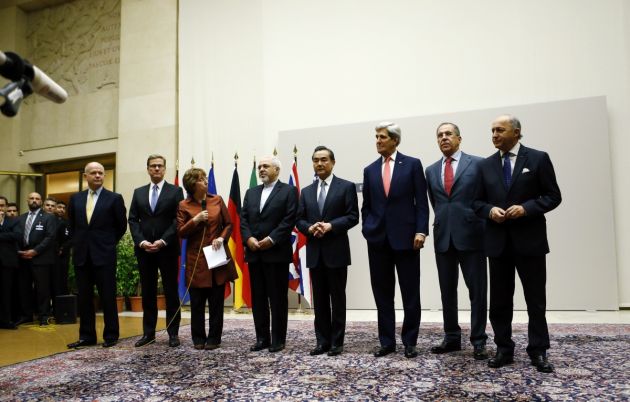US bishop urges Congress not to subvert agreement with Iran

The head of the U.S. bishops' international peace committee has welcomed the peaceful resolution in the framework for Iran's nuclear program and is asking the U.S. Congress to support and not "undermine" the deal.
"We welcome the most recent step the United States and its international partners have taken with Iran and encourage our nation to continue down this path," said Bishop Oscar Cantu of Las Cruces in an April 13 letter to the U.S. Senate.
Bishop Cantu spoke out on the framework outlined in the Joint Comprehensive Plan of Action reached April 2.
The plan was hammered out in negotiations between the Islamic Republic of Iran, the European Union, and the P5 1 countries – the United States, Britain, France, Germany, Russia, and China.
It provides a framework for a final agreement to be reached June 30 that is hoped to allow international observation of Iran's nuclear program.
It "aims to curb the unacceptable prospect of Iran developing nuclear weapons," said the bishop in his letter.
Bishop Cantu noted that on Easter Sunday, Pope Francis prayed that "the framework recently agreed to in Lausanne ...may be a definitive step toward a more secure and fraternal world."
The U.S. factsheet issued after the talks outlining deal includes the following conditions:
* Iran will reduce its installed centrifuges - used to enrich uranium - by two-thirds and reduce its stockpile of low-enriched uranium
* The centrifuges that are no longer in use will be placed in storage, monitored by the International Atomic Energy Agency (IAEA)
* All of Iran's nuclear facilities will be subject to regular IAEA inspections
* Iran will redesign its heavy-water reactor in Arak so that it cannot produce weapons-grade plutonium
* U.S. and EU sanctions related to Iran's nuclear programme will be lifted in phases, but can be brought back if Iran does not meet its obligations.
"We hope the agreement is a first step in fostering greater stability and dialogue in the Middle East," said Bishop Cantu.
"For this reason, our committee continues to oppose Congressional efforts that seek to undermine the negotiation process or make a responsible multi-party agreement more difficult to achieve and implement.
"The alternative to an agreement leads toward armed conflict, an outcome of profound concern to the Church."
He said that now is the time for dialogue and building bridges which can foster peace and greater understanding.
Bishop Cantu's warning came as the U.S. Senate was preparing to debate a bill supported by both the main parties allowing Congressional review of a final agreement with Iran.